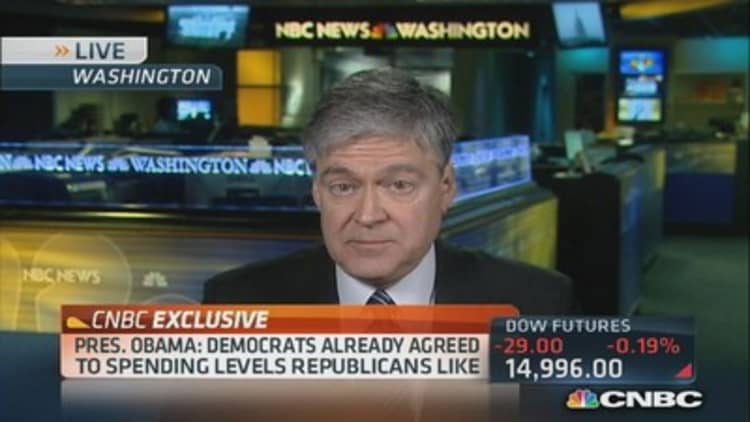Washington's politicians may disagree, but Goldman Sachs thinks Congress's failure to strike a budget deal, and the resulting government shutdown, is nothing for markets to panic over.
In fact, the risk-off momentum may offer investors a chance to bet the economic upturn will continue.
Markets have taken a bearish turn since failed to set a new budget by Monday's midnight deadline, resulting in a partial government deadline which has left around 800,000 federal employees on unpaid leave. Equity prices are well off the highs reached after the last Federal Reserve meeting (when the central banks surprised markets by failing to announce a start to tapering), bonds yields have rallied, safe haven currencies have strengthened and emerging markets have weakened.
But Goldman Sachs — basing its forecast on recent data, its forward outlook and past government shutdowns — believes the markets' jitters would likely prove short-term.
"Past experience suggests that markets tend to take these sorts of events in stride… While risk-off moves can persist, and catalysts that improve sentiment are hard to discern in advance, we see little that causes us great concern," said Goldman analysts led by Dominic Wilson in a research note out on Wednesday.
(Read more: )

Wilson said economic data released in September suggested the world economic upturn was continuing. Global PMI (purchasing managers' index) climbed in August to 52.5, marking the fourth consecutive month above the 50-threshold that indicates expansion — and the fifth monthly improvement in a row. Both U.S. and China PMIs also improved, although European aggregates declined slightly.
"Our global forecasts continue to indicate that we are in the early stages of a long patch of accelerating growth and the first bits of the September data look firm—although the signals are a bit more mixed, with some evidence that the strong summer acceleration has slowed," Wilson said.
He added that adverse market reactions to previous U.S. government shutdowns — of which there have been 18 in the last 35 years — were generally brief, suggesting now might be the time to move into riskier assets such as stocks.
(Read more: )
"Any negative market reaction tends to happen in advance of the actual shutdown and those reactions tend to be short-lived. The biggest and most persistent impact seems to be on measures of uncertainty. There seems to be some evidence of a flight to quality, but forward-looking risky assets tend to return quickly to upward trends," Wilson said.
—By CNBC's Katy Barnato

